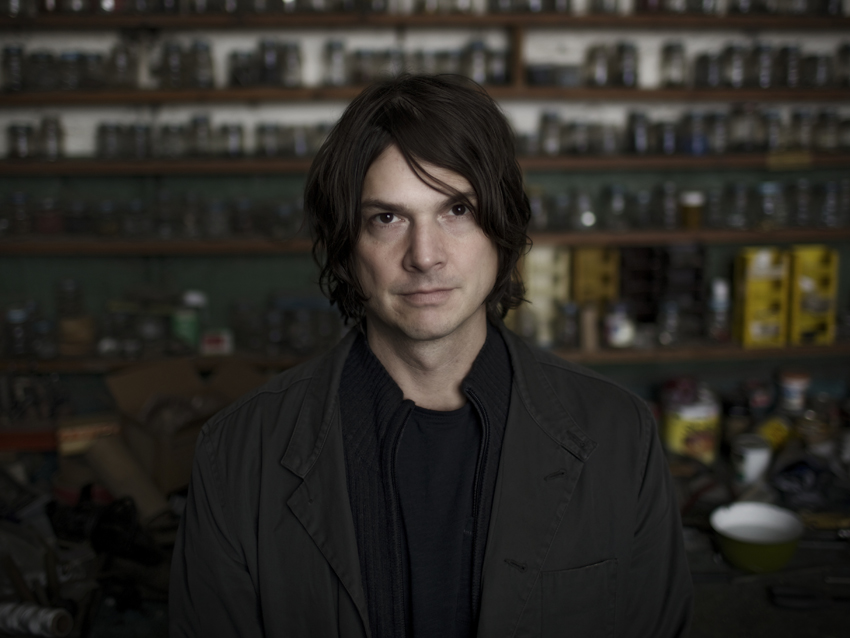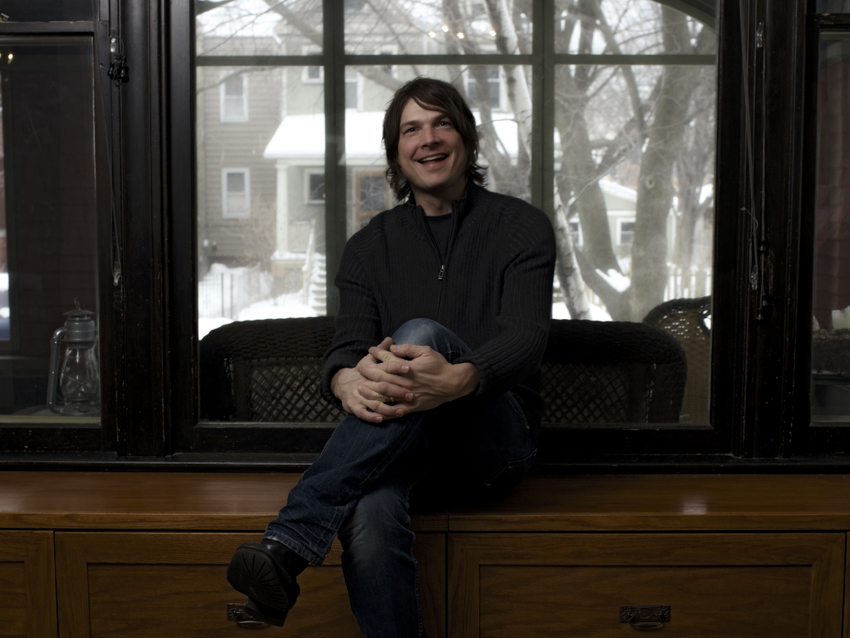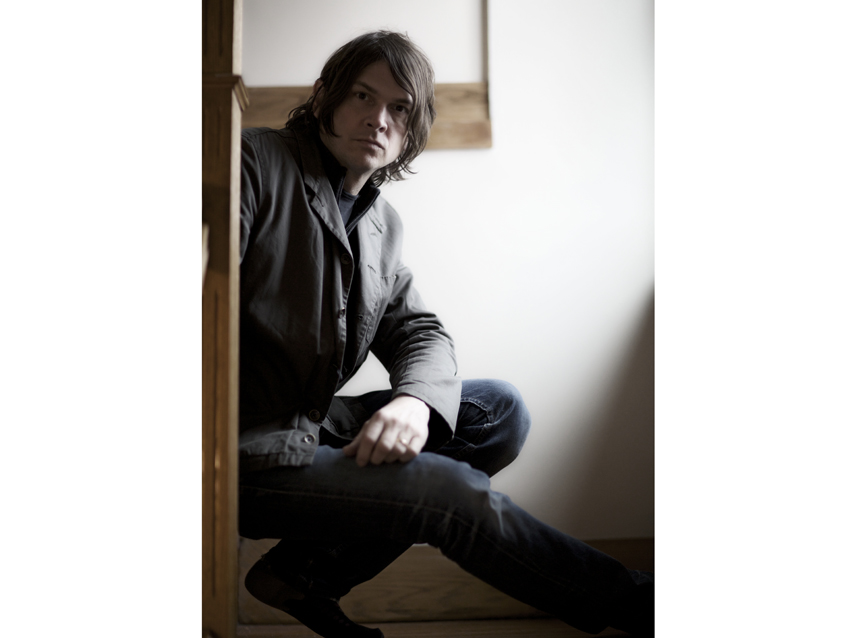
Wilco's Glenn Kotche: my top 5 tips for drummers
Wilco drummer and percussionist Glenn Kotche espouses a view that players should aim for individualistic expression no matter what form of music they're playing. Supporting this notion, he recalls one of his early gigs that might have raised a few eyebrows but ended up paying off big time.
“I brought a metal sculpture with me to a show I was playing with Edit Frost in Chicago," he says. "I was just looking for a way to make it more interesting, and with the sculpture I could hang a bunch of cymbals from it or play brushes on the base of it. I could use it for sound effects on one or two tunes – all kinds of things. [Producer] Jim O’Rourke saw that and thought, ‘Wow, this guy is doing interesting stuff. He’s not a conformist.’ I started to work with Jim, and through him I got into Loose Fur and then Wilco."
He pauses, then adds with a laugh, "I wasn’t trying to be weird or different or anything; I was just being myself. But it's lots of little things that have made me work within Wilco and be successful in that setting. A lot of preparation and doing my homework went into it, but the biggest thing is trusting my instincts and listening to what I hear in my head."
Kotche also stresses being open to new and outside concepts and influences. "There are things that I learned playing in big bands or listening to a steel drum band that I've been able to apply to rock," he says. "Really, there’s just an endless flow of influences and inspirations out there. For me, it’s always about looking outside of myself and picking things up from other music, visual arts, movies, even literature. I ask myself, ‘How can I apply what this person did to what I do?’ It’s amazing what you can do when you look in different places."
And some of those places, says Kotche, can be found by simply getting away from it all and enjoying life: “I’m all for practicing as much as possible and involving yourself in as many playing experiences as you can find. On the other hand, you have to be a whole person, too. Having a work/life balance is really important. I think Vinnie Colaiuta said something like, ‘You’re life is what gives you your groove. If you live in your practice room all the time, there’s probably not a lot of exuberance that’s going to come out in your music.’ That’s so true. Get out there and enjoy life, and then when it’s time to practice, give it your all.”
Glenn Kotche's most recent solo release, Adventureland, can be ordered at the Wilco Store. On the following pages, Kotche offers his top five tips for drummers.

Play
“The more you do it, the better you get and the more fun it becomes. Alone or with others, put in the time and learn. The more experience you have, the better you'll be prepared, and you'll able to adjust when needed. I've learned important lessons that have helped me time and time again in playing situations that I thought were just for exposure or for an easy paycheck.
“Try to vary your experiences. Get in as many playing situations as you can. I took gigs in ragtime bands and wedding bands. I played Christmas parties – you name it. I actually learned some Herbie Hancock tunes by playing in a girl’s pep band. After years of playing in a big band, my feel improved dramatically when I learned how to play swing rolls on just a snare with that ragtime band. You never know what will change things around for you, so immerse yourself in as much as you can.”

Have big ears - and eyes
“Listen, listen, listen. Listen to all kinds of music. Listen to the other people you're playing with. Listen to the sounds that surround you. I can't say this enough: listen and learn.
“Listening to a lot of afrobeat music really opened me up to a new way of playing. Like, I discovered that it’s not always about a backbeat; there can be these flowing patterns I can apply to what I do. I’ve also listened to a lot of indiginous music and modern classical music. There’s so many timbres and textures you can apply on the kit – it’s not always about being a timekeeper.
“Visual arts influence my music, as well. There’s a whole piece on my record Mobiles that relates to this, and of course, the title refers to Alexander Calder, who crafted mobiles. It might sound pretentious, but I tried to emulate musically the movement of the shapes and the shadows they cast. Looking at mobiles and the way they move expanded my writing and playing quite a bit.”

Be prepared - the old adage
“By this, I mean know the music and your parts well. This makes everyone else's life easier, and it makes things more fun since you can enjoy the music instead of worrying about what might happen next.
"Be early to rehearsals and performances – a little extra time makes all the difference if something goes wrong or something unexpected happens. Make sure all of your gear is working properly and sounds great. And don't forget to pack anything if you're bringing your own gear to the show. I can't overstate the importance of being prepared. This also means to put the time into learning and exploring your instrument, so when you are called on for that lucky break, you're ready."

Learn the basics
“I've seen too many drummers who are one dimensional and hit a wall of progress at a certain point because they never bothered to learn the basics. It's very important to learn and understand at least some of the rudiments and how to apply them to the drumset. Even a cursory knowledge and familiarity of some of the diddle and flam rudiments will open up whole new worlds in your playing.
“Everybody knows single strokes, which are great, but developing the fine motor skills that use your fingers and wrists and coordinate with your eyes will really open up your drumming in lots of new and exciting ways. If you have a handle on those skills, you’ll have a platform to expand your drumming to a much greater degree.”

Be someone who others want to work and play with
“There are so many amazing and interesting drummers out there who either don't work or don't work nearly as much as they should just because they're either a pain, a downer or just a head-case.
"Having a personable disposition and being mindful of others is crucial for functioning in a band. If you're constantly complaining, prone to arguing, irresponsible, obnoxious or even have poor hygiene, others are not going to want to spend endless hours on the bus, in the van or on stage with you. I know average drummers who are enthusiastic, conscientious and flexible who work constantly. Sometimes you're together more off stage than on, so be a person who others want to spend some time with. It helps."
Joe is a freelance journalist who has, over the past few decades, interviewed hundreds of guitarists for Guitar World, Guitar Player, MusicRadar and Classic Rock. He is also a former editor of Guitar World, contributing writer for Guitar Aficionado and VP of A&R for Island Records. He’s an enthusiastic guitarist, but he’s nowhere near the likes of the people he interviews. Surprisingly, his skills are more suited to the drums. If you need a drummer for your Beatles tribute band, look him up.
